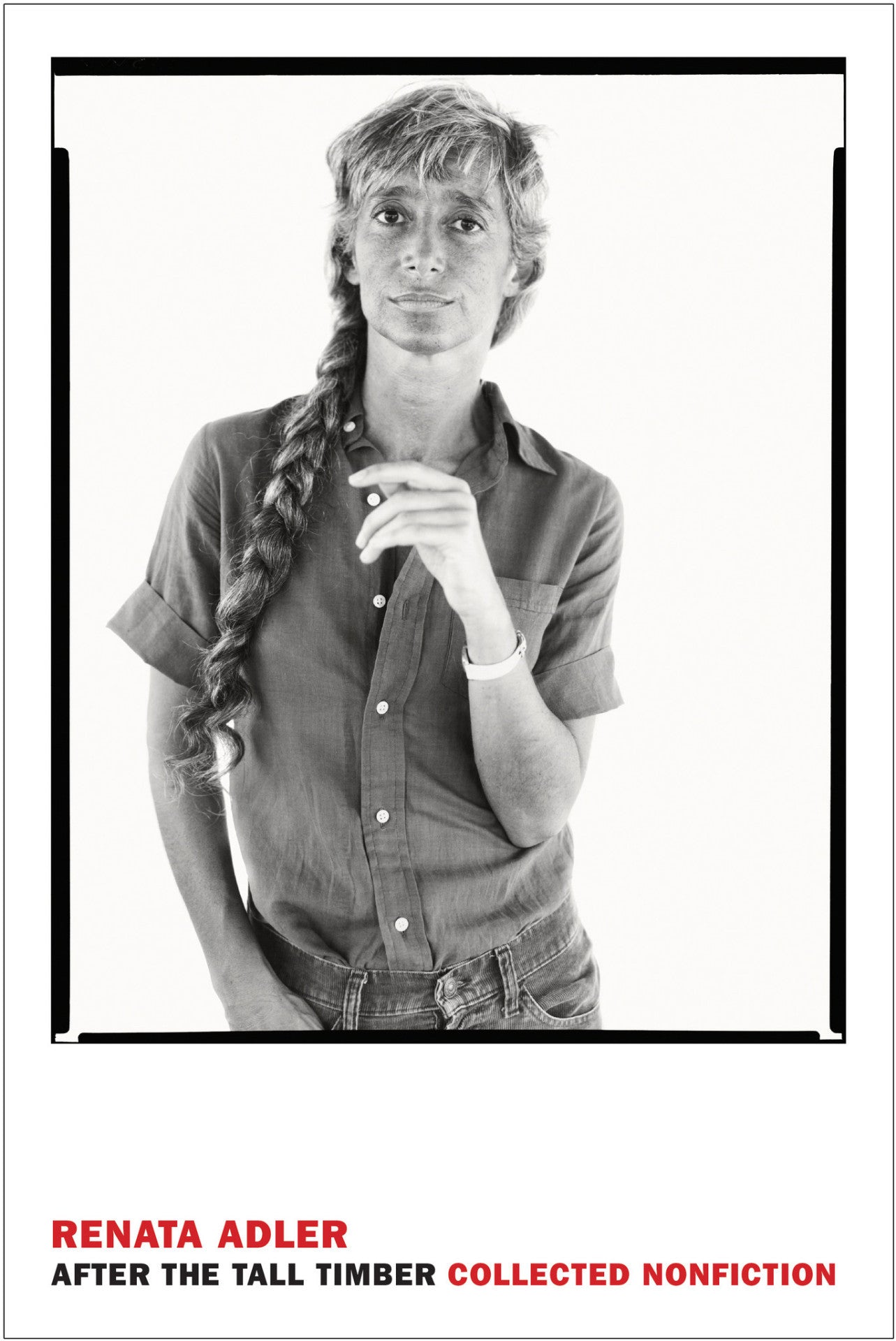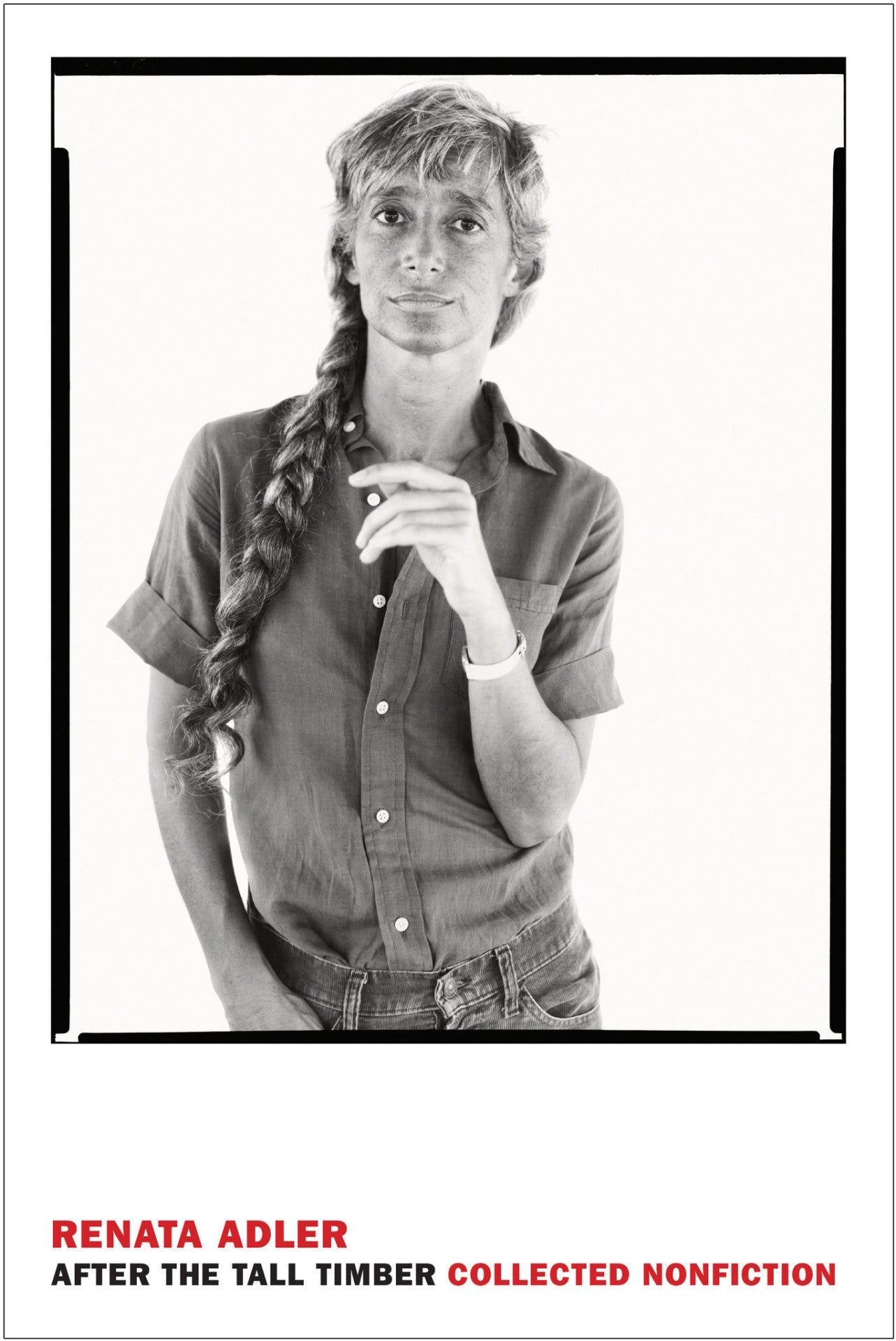One of the most important postwar writers (and prose stylists), Adler here covers everything from generational silliness to civil rights in the South. It’s all the harder to put down because it sometimes boils your blood.
—Flavorwire
Selected as one of “The Best Books of 2015” by Vulture/NYMag.com
Selected as one of Publishers Weekly‘s Top Ten Spring 2015 Politics titles.
Two years after the reappearance in print of her novels Speedboat and Pitch Dark, Adler has returned again as a reporter, essayist, and critic — one of the best we’ve had on all three fronts. The new collection charts her progression from reporter to Yale Law–trained parser of constitutional betrayals and journalistic malpractice, and the truth is, though she’s been near-silent for some time, she only ever got better.
—Vulture/NYMag.com
Renata Adler is a clarion, often controversial critic, reporter, and novelist highly visible in the 1960s and 1970s. She was as tuned-in to the zeitgeist and as intrepid in her interpretation and articulation as Joan Didion and Susan Sontag…After the Tall Timber is a sumptuously intelligent and exhilarating collection by a courageous and committed writer of integrity, artistry, and independence. A provocative and elevating book that recalibrates journalistic standards, and sharpens our perception of the recent past and its influence on our even more harrowing present. Readers will hope that Adler’s triumphant return to print will open the way for new works. We need Adler’s brilliance, wit, and lucidity.
—Booklist
The eloquent and combative essayist Renata Adler presents dispatches from the frontlines of the 1960s and ‘70s.
—Everett Jones, Publishers Weekly
She is one of the most brilliant—that is, vivid, intense, astute, and penetrating—essayists in contemporary letters, and most contrarian: much of what you think she will passionately undo.
—Michael Wolff, The Guardian
Fiercely argued, sharp-witted…Adler, whose writing for The New Yorker, The New York Times, The Atlantic Monthly, The New York Review of Books, The New Republic, Harper’s, and Vanity Fair has enlightened and enraged so many, is just whom we need for some perspective on our strange new world.
—Daily News
Acutely reasoned to the point of wittiness, and occasionally outright funny…[Adler] most visibly dramatizes…the contest of a single reasonable mind against the brute forces of institutional behavior.
—Christopher Lehmann-Haupt, The New York Times
An observer of acute intelligence and discriminating sensibility.
—Encounter
Nobody writes better prose than Renata Adler.
—John Leonard, Vanity Fair
Adler’s opinions are as reasoned as they are relentless….These selections, united by a persistent theme of the “misrepresentation, coercion, and abuse of public process, and… the journalist’s role in it,” demonstrate that Adler’s uncompromising insistence on accuracy and accountability is what ultimately makes her writing so incisive.
—Publishers Weekly






